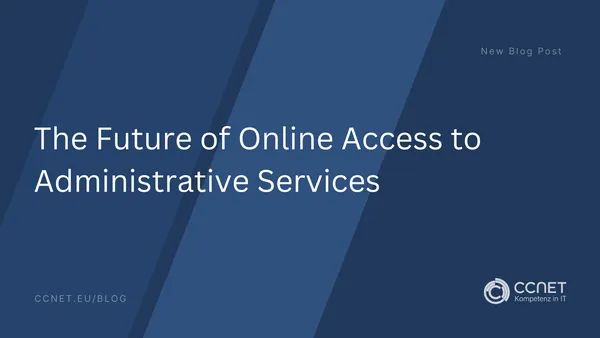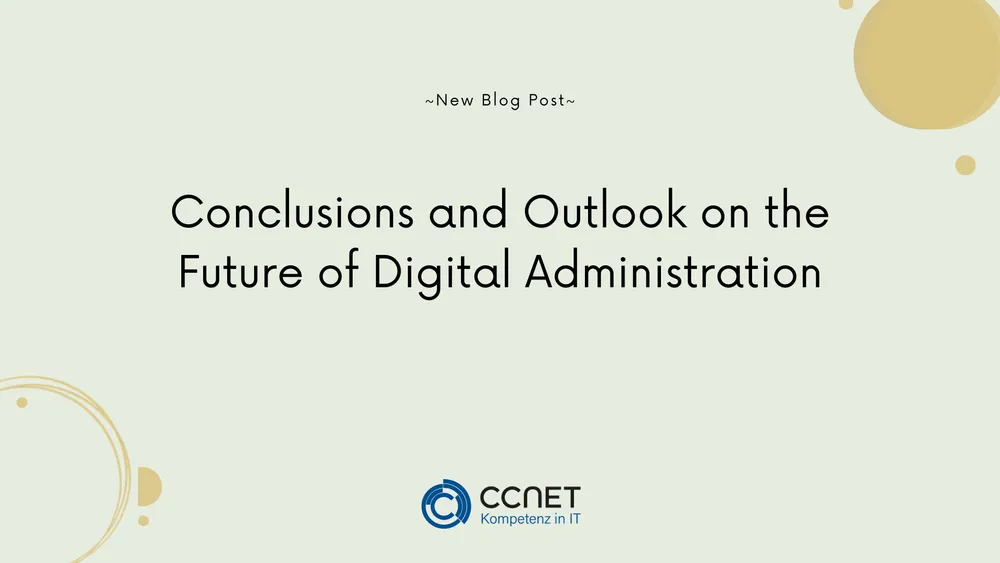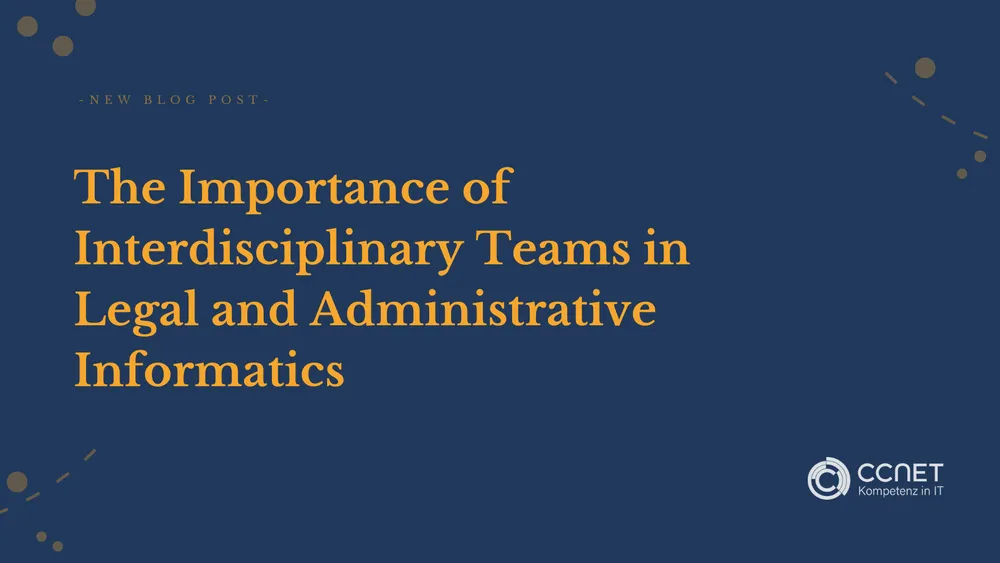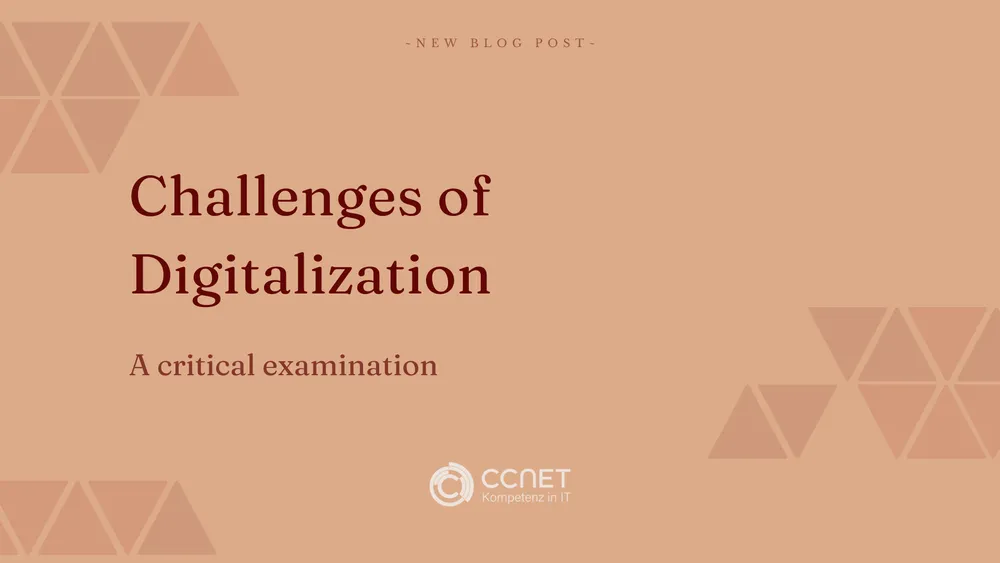
CCNet
Jul 31, 2024 • 3 min read

The Future of Online Access to Administrative Services: A New Era in Public Administration
Digital transformation has fundamentally changed how public services are delivered and used. In particular, online access to administrative services plays a central role in modernizing public administration and offers significant benefits to both citizens and businesses. This article explores the developments and challenges in the context of online access to administrative services and their impact on administrative organization. As technology continues to advance, it's imperative to continuously evaluate and adapt digital solutions to ensure they remain accessible, secure, and efficient for all stakeholders involved. Additionally, fostering digital literacy among users is crucial for maximizing the potential of online administrative services and promoting equitable access to government resources and information.
If you have any further questions, contact us: contact
Development of Online Access
Creating comprehensive online access to administrative services is a key component of digitalization strategies in many countries. In Germany, this approach is pursued through the Online Access Act (OZG), which mandates the availability of administrative services through digital portals. Similar initiatives are also taking place at the European level, such as the establishment of the Single Digital Gateway by EU Regulation 2018/1724, which aims to create a union-wide portal network facilitating seamless access to governmental services and information for citizens and businesses alike.
Benefits of Online Access
Online access to administrative services offers numerous advantages:
- Increased Efficiency: Digital services enable faster and more cost-effective processing of administrative procedures.
- Greater Transparency: Citizens can track the status of their applications in real time, leading to greater transparency in administrative processes.
- Improved Accessibility: Digital services are available 24/7, which is particularly beneficial for working people or those in rural areas.
Challenges and Solutions
Despite the obvious advantages, officials face significant challenges:
- Data Protection and Security: Ensuring privacy and protecting personal data are crucial for strengthening user trust in digital services.
- Technical Barriers: Ensuring interoperability between different systems and platforms requires advanced technical solutions.
- Digital Divide: Access to digital services requires all citizens to have the necessary technical means and skills. Targeted education and support programs are needed here.
Future Perspectives
The future of online access to administrative services looks promising. The ongoing development and improvement of digital platforms will continue to change how citizens and businesses interact with administration. It is expected that ongoing digitalization and the introduction of new technologies like Artificial Intelligence will make administrative processes even more efficient, transparent, and user-friendly. This evolution will likely result in increased accessibility and convenience for users, fostering greater efficiency in public services and enhancing overall satisfaction with governmental interactions.
Conclusion
Online access to administrative services is a key element of digital transformation in the public sector. While the benefits are clear, the challenges must be carefully addressed to ensure inclusive, secure, and effective digital administration. The further development of this area will play a crucial role in creating a modern and responsive public administration that meets the needs of its citizens, thereby fostering greater trust in governmental institutions and promoting civic engagement in the digital age.
What is the Online Access Act (OZG) and why is it important?
The Online Access Act (OZG) requires the provision of administrative services via digital portals in Germany. It is a central component of the digitisation strategy to enable and promote online access to administrative services.
Which technologies are crucial for online access to administrative services?
Ensuring interoperability between different systems and platforms requires advanced technical solutions. This includes the development of uniform interfaces and standards to enable the seamless use of digital services.
What are the challenges in terms of data protection and security for online administrative services?
Safeguarding privacy and protecting personal data are crucial to ensuring user confidence in digital services. Continuous monitoring and adaptation of security protocols is necessary to prevent misuse and data leaks.
What are the advantages of online access to administrative services?
Online services increase efficiency, enable faster processing of administrative procedures and offer citizens round-the-clock access to administrative services. In addition, greater transparency is achieved as citizens can track the status of their applications in real time.
What social challenges arise with online access to administrative services?
The digital divide is a challenge, as not all citizens have the technical means and skills to use digital services. Education and support programmes are necessary to enable access for all citizens.
How will online access to administrative services develop in the future?
Advancing digitalisation and the use of new technologies such as artificial intelligence will make administrative processes more efficient, transparent and user-friendly, further simplifying interaction between citizens, businesses and the administration.


